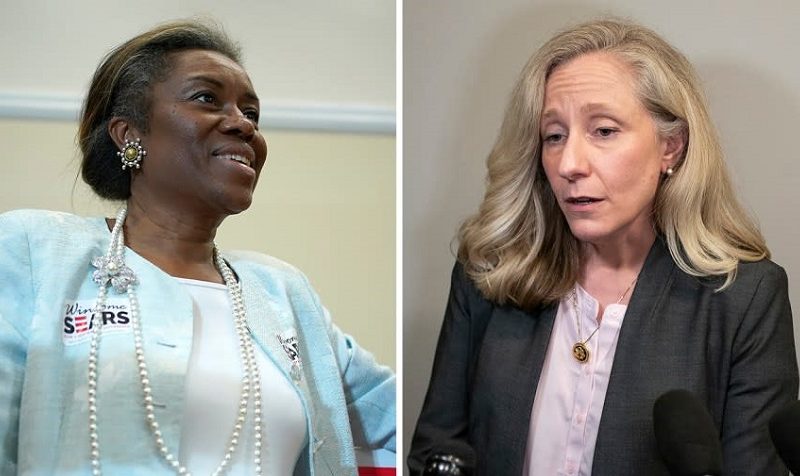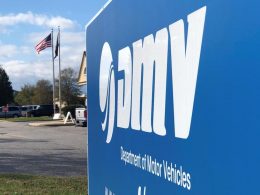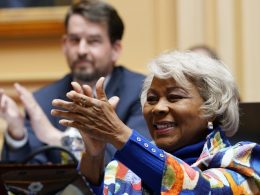River City, VA – For the first time in Virginia’s history, voters will likely head to the polls in November 2024 to choose between two women vying for the state’s highest office. Rep. Abigail Spanberger and Lt. Gov. Winsome Earle-Sears have cleared the field in their respective parties, positioning themselves as the likely Democratic and Republican candidates for governor. This marks a significant departure from Virginia’s 74 governors, all of whom have been men.
Spanberger, a former CIA officer, has had the Democratic contest to herself since her sole opponent dropped out earlier in the year. Earle-Sears, a Marine veteran and the state’s first Black woman lieutenant governor, has seen her main rival for the Republican nomination bow out, leaving her to pursue the top office without competition. While other candidates could still emerge before the June primaries, political analysts widely expect the race to come down to Spanberger and Earle-Sears.
Their candidacies are historic not just for Virginia but also for the broader American political landscape. Of the 49 women who have served as governors across the U.S., only a handful have faced each other in a general election. According to the Center for American Women in Politics, this scenario has only occurred 10 times in the nation’s history.
“This is a huge step forward,” said Amanda Hunter, former executive director of the Barbara Lee Family Foundation, which has studied women in politics for over two decades. “For two women to compete for governor in Virginia, a state with such a complex political history, is a real sign of progress.”
While such races are rare, they are not without precedent. This year, Republican Kelly Ayotte and Democrat Joyce Craig ran for governor in New Hampshire, though it remains uncommon for both major parties to nominate women for the same office. Amanda Iovino, executive director of the Virginia Conservative Women’s Coalition, highlighted the challenges that women candidates face when running for executive office, emphasizing that success often comes when two women compete directly against one another.
“It’s extraordinarily difficult for a woman to be elected as an executive,” Iovino said. “But when two women run against each other, it often changes the dynamic and allows them to break through some of those barriers.”
The two women running in Virginia defy many stereotypes about female candidates. Spanberger, who served as a CIA officer overseeing operations in foreign countries, brings a background in intelligence and national security to the table. Earle-Sears, in turn, has a history of military service and has held political office since becoming lieutenant governor in 2022. These nontraditional backgrounds have helped both women distinguish themselves as capable, tough leaders in a political sphere often dominated by men.
However, the historic nature of their candidacies is not something either candidate has leaned into heavily. Earle-Sears, for example, has focused more on the practical issues facing Virginians rather than the historic significance of her campaign. “This is about making life better for every Virginian, right here, right now,” she said during her campaign kickoff in September. Similarly, Spanberger has yet to highlight the gender-breaking aspect of her candidacy, with many speculating that both women are more focused on policy than on symbolism.
Yet, as history-making candidates, they face challenges unique to women in politics. Despite the progress made in recent years, gender bias remains a barrier. Research from the Barbara Lee Family Foundation has shown that female candidates often face more scrutiny than their male counterparts, particularly regarding their appearance, tone, and demeanor. Even in races between two women, bias can be amplified, as voters hold women to higher standards of likability and competence, while male candidates are often judged more leniently.
Political experts have noted that neither candidate has been questioned about whether Virginia is ready for a woman governor, a question that dogged female candidates like Mary Sue Terry in 1993, when she ran for governor against George Allen. Terry’s campaign became mired in controversy over her personal life, and some voters questioned whether she could serve as a leader due to her status as a single woman without children. While such overt sexism has diminished in recent years, experts caution that gender bias in the electorate still exists and could affect the outcome of the race.
Political scientist Mark J. Rozell, who studied the 1993 Terry-Allen race, noted a significant shift since then. “No one is asking whether Virginia is ready for a woman to be governor this time,” he said. “The question now is more about the candidates’ political appeal, not their gender.”
In the Democratic camp, some remain concerned about Spanberger’s ability to galvanize the party’s progressive wing, particularly given her reputation as a moderate who has opposed more liberal figures like House Speaker Nancy Pelosi. For Republicans, Earle-Sears’ candidacy is widely seen as a strong move to unify the party after a year of internal divisions.
For both women, the 2024 race represents more than just a chance to make history; it’s an opportunity to shift the political landscape in Virginia and, perhaps, set a precedent for future generations of women in executive roles. With an increased number of women holding political office in recent years, experts hope that races like this one will become more common.
“If we want to see more women in executive office—and eventually in the presidency—having women vs. women races is a key strategy,” said Celinda Lake, a Democratic pollster. “It’s one of the most effective ways to break through the glass ceiling.”
As the race heats up in the coming months, Virginia voters will be watching closely to see how the two candidates navigate the complex dynamics of gender, politics, and leadership. Whether or not they are able to shatter the glass ceiling in 2024, their candidacies have already made a lasting impact on the future of women in American politics.











